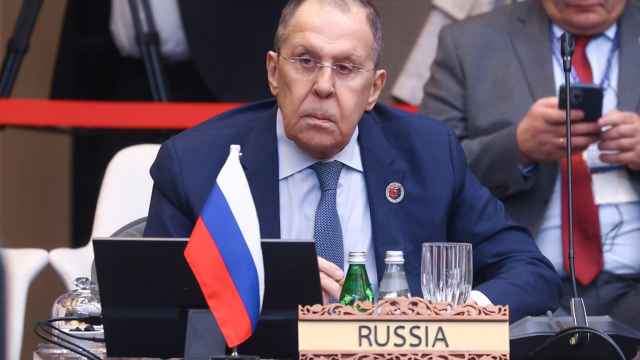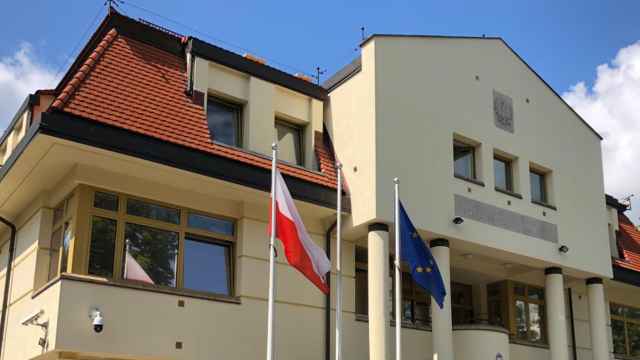 Boris Kagarlitsky
Boris KagarlitskyWhile seated at the breakfast table recently, I noticed a box bearing the mysterious inscription: "Official juices and nectars." I was astonished. Did that mean there were also "unofficial" juices and nectars? Or even worse, "bootleg" juices and nectars? How would those pretenders differ from the "official" variety, I wondered? Then I turned the box around and discovered the symbol of the 2014 Sochi Olympics. Apparently, the manufacturer had meant to state that it is an official supplier to the Olympic Games. However, that phrasing was apparently too long or too complicated. The result was an oversimplification of the language that came off as more comic than impressive.
Unfortunately, the comedy did not end there. Russia's attempt to promote the Sochi games is breaking all records. For example, the world was recently treated to a unique spectacle — the Olympic flame was toted into open space by Russian cosmonauts aboard the International Space Station. However, the images broadcast to the world showed the flame in an "unlit state."
The good folks at the Baikonur Cosmodrome reassured that everything was perfectly logical: "Astronauts Oleg Kotov and Sergei Ryazansky will carry the torch in open space," a spokesman explained. "And in the interests of safety, the torch will be unlit."
Does this mean the organizers of the stunt had actually considered burning the torch in outer space? I don't know which school these people attended, but apparently they missed the lesson explaining that combustion requires oxygen, which is rather hard to come by in space.
Of course, even when Russia's Olympic torch was lit, it often went out anyway. The solution to that problem is to not light the torch in the first place — just trot it around the country showing everyone its elegant design. And it should impress — no less than $6.4 million was spent on the 15,000 produced. If the torches actually stayed lit, they could illuminate a medieval castle for at least the next few years.
The Bacchanalia with the Olympic flame is just the tip of the iceberg. The pompous and meaningless preparatory activities and construction projects that have already become legendary for the degree of corruption and graft and the colossal expenditures of taxpayer's money at a time when funding for social services is declining and two-thirds of Russia's regions need government assistance to avoid bankruptcy have made the Sochi venture very unpopular among a significant segment of the population.
The 1980 Olympic Games held in Moscow also experienced problems — at least political ones. And although the international protest over the Soviet war in Afghanistan was prompted by weightier concerns than Russia's recent arrests of Pussy Riot members and Greenpeace activists, there was something sincere and even touching about Misha the Bear, the mascot of those Olympics. The Games themselves never went beyond the standard Soviet approach to public ritual and were never perceived as overdone or forced. But while everyone knows that Russia suffers from endemic corruption, apparently nobody in the International Olympic Committee seriously imagined that the Sochi Games would function primarily as a means of personal enrichment for crooked Russian officials and businesspeople.
In ancient times, officially organized public spectacles and lavish celebrations helped deflect the people's attention from rulers' shortcomings and society's ills. But such displays might produce the opposite effect in an age of Internet communication and live television — especially if the torch flame again goes out as viewers are looking on or if Russian officials cannot rise to a higher level of intellect than "official juices and nectars … "
Boris Kagarlitsky is the director of the Institute of Globalization Studies.
A Message from The Moscow Times:
Dear readers,
We are facing unprecedented challenges. Russia's Prosecutor General's Office has designated The Moscow Times as an "undesirable" organization, criminalizing our work and putting our staff at risk of prosecution. This follows our earlier unjust labeling as a "foreign agent."
These actions are direct attempts to silence independent journalism in Russia. The authorities claim our work "discredits the decisions of the Russian leadership." We see things differently: we strive to provide accurate, unbiased reporting on Russia.
We, the journalists of The Moscow Times, refuse to be silenced. But to continue our work, we need your help.
Your support, no matter how small, makes a world of difference. If you can, please support us monthly starting from just $2. It's quick to set up, and every contribution makes a significant impact.
By supporting The Moscow Times, you're defending open, independent journalism in the face of repression. Thank you for standing with us.
Remind me later.





